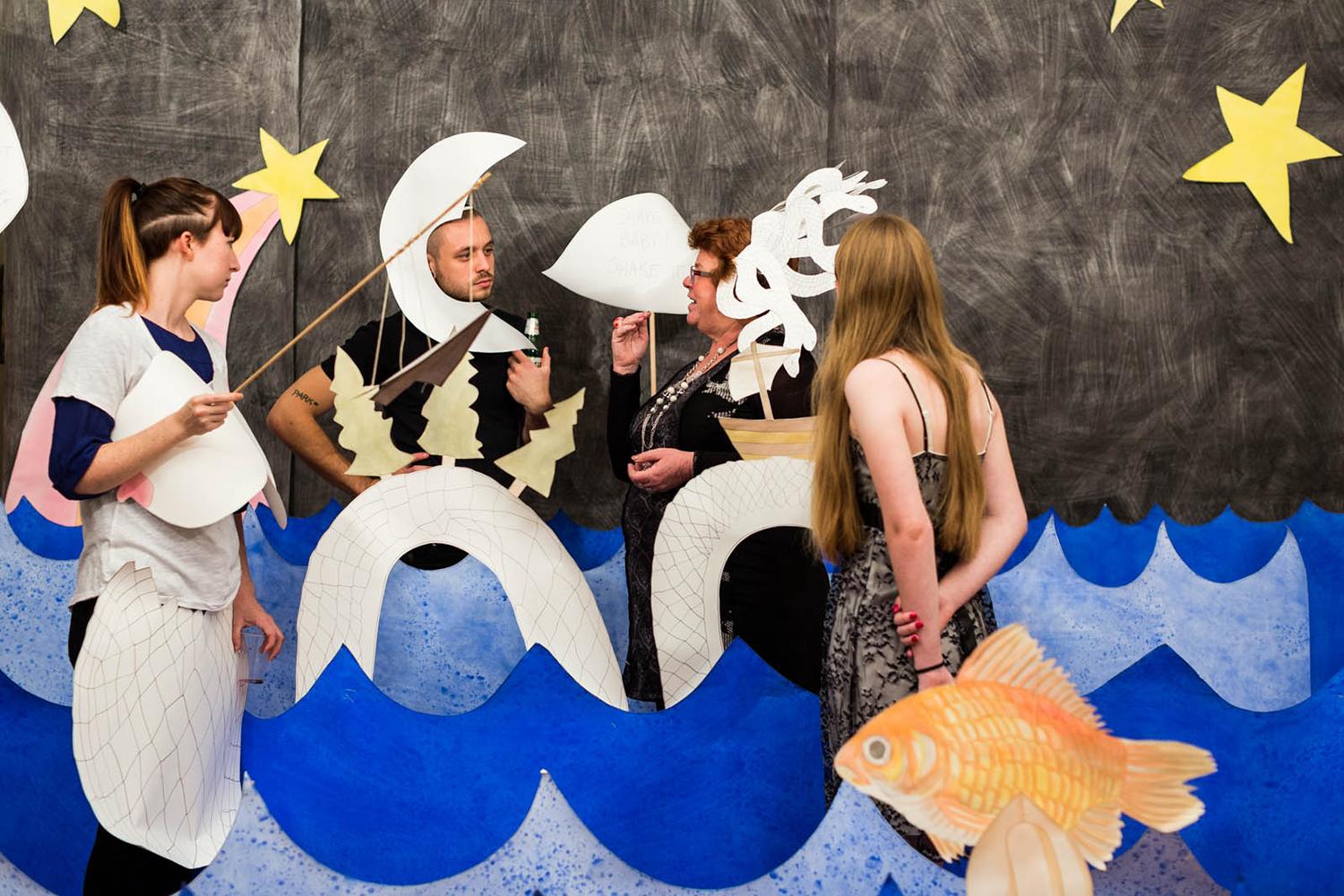Neptune’s Estrangement, 2013
Neptune's Estrangement forms the second sequence of images in the Ovid's Medusa series, which deconstructs and reconceives the account of Medusa provided in Ovid’s 'Metamorphoses'. Visual references to art history, Christianity and contemporary political events infuse these fantastic illustrations, questioning the patriarchal bias and assumptions present within the original text.
Neptune’s Estrangement #2 is a watercolour and pencil drawing. It acts as the starting point for the second series of images in this reconstructed narrative. In this part of the story Medusa has broken free from the persecution inflicted by Neptune. She wears a dildo around her waste as a symbol of power attained (or at least negated) and raises her hands to the sky in a celebratory gesture of freedom. Her tail supports her dreams of voyaging to a better place with a prosperous future. However, the man in the moon looks with disapproval at this rebellion against the ‘natural’ order of things.
Neptune's Estrangement #4 was an interactive installation that took place at Inhouse ARI on November 17, 2013. A large set was installed alongside props on a nearby podium. Visitors were welcome to interact freely with the work by utilising the props and inhabiting the set. This participatory performance allowed visitors to manipulate gendered preconceptions by adorning themselves with body parts from either sex. Visitors recorded the event on smartphones and via social media. In this way contemporary democratic documentary processes reproduced and affected the story. The show was accompanied by a text written by Madeleine Stack.
Neptune’s Estrangement #5 is a film made using footage from the interactive performance. As a record of the event visitors become performers bemusedly swapping props and costumes along with gendered roles and assumptions. They further fragmented the original narrative imposing new meaning and interpretations upon the original.
Special thanks to: Ben Crowley, Sarah Oxenham and all the people who participated in the work; Meagan Streader and Jenna Baldock of Inhouse ARI; and Madeleine Stack.








































